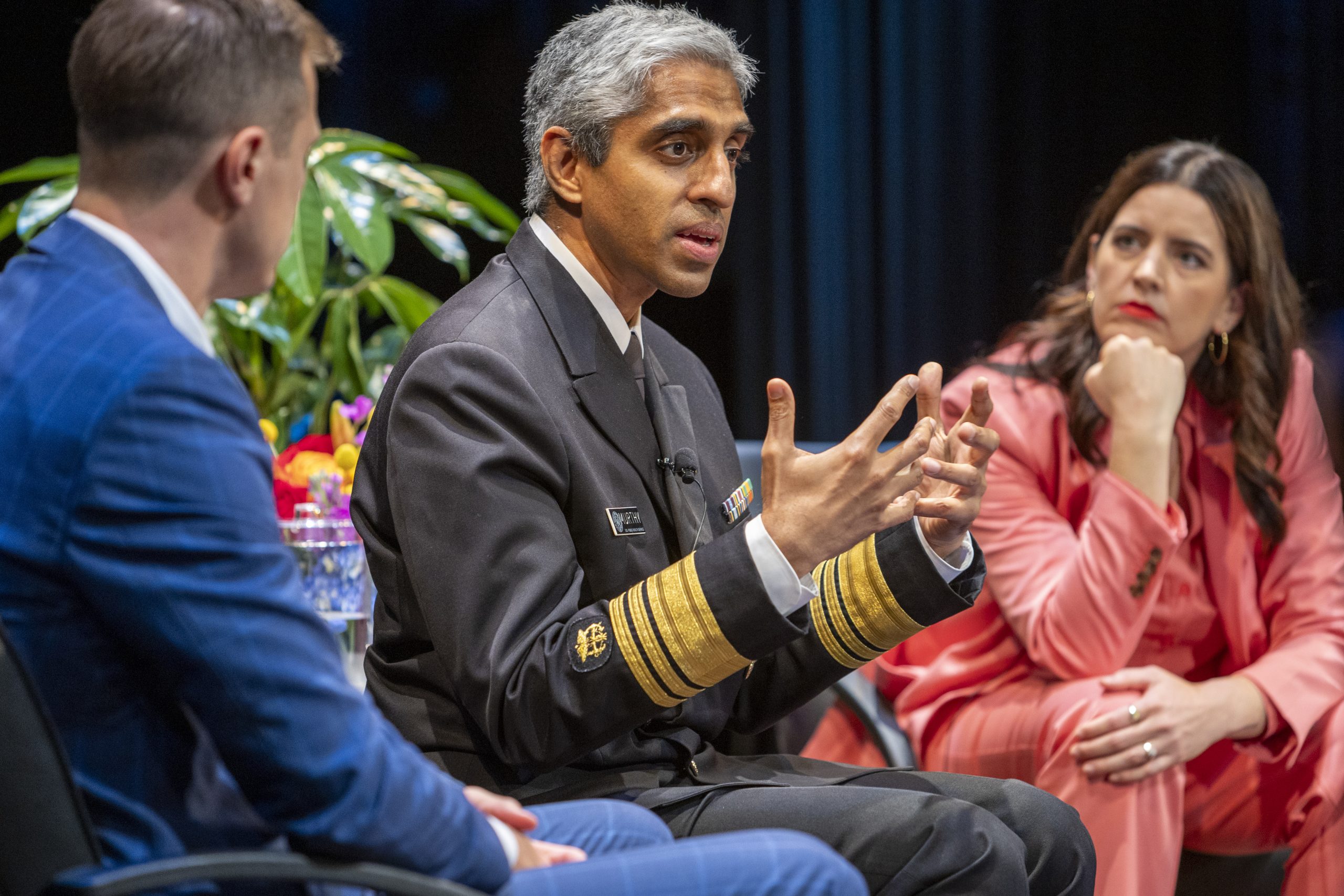How’s the media doing in terms of educating the public and making civil discourse possible for citizens?
If the level of our discourse is a measurement of how the news media is doing, then I don’t think we’re doing particularly well. For a long time, many Americans thought of the news media as one of the honest brokers of our society. When there were issues – complicated, wrenching issues that we were working through as a country – the news media was one of the places people turned to figure out how to sort out their thinking. That goes all the way back to the Federalist Papers. All 85 of them were published as letters in various newspapers in New York. There’s a long history of our playing a constructive role in the most urgent debates in our society.
“If the level of our discourse is a measurement of how the news media is doing, then I don’t think we’re doing particularly well.”
Stephen Buckley
Now that role is greatly diminished, partly because of the diminishment of local newspapers and local news organizations – which has led to news deserts. And then you also have the fragmentation of the media echo system and accompanying fragmentation of audiences. So, in short, I don’t think we’re necessarily advancing the cause of civil discourse.
When I said ‘media,’ I was probably being unfairly vague. Doesn’t that term suggest a bigger umbrella than ever?
The truth of the matter is that every one of us is potentially a member of the media. If something happens outside your office right now and you go out and snap a photo of it and upload it to Instagram or X, or send it to a media outlet, you are potentially committing an act of journalism. So I am careful to say ‘news media.’ But even saying ‘news media,’ that includes so much these days. And unfortunately that includes a lot of folks who aren’t practicing journalism. They’re practicing opinion writing, in that they’re writing down their thoughts. But they aren’t gathering facts and context, and there is no accountability for them.
The reality is, a lot of folks who say they’re practicing journalism, are not.
Do individuals bear some responsibility to be smart news consumers?
They certainly bear some responsibility in the same way we all bear the responsibility for voting. There are many reasons why people don’t vote, for sure. In the bigger picture, we get the democracy we deserve. We’re the ones who cast votes.
In an environment so overwhelming in terms of the amount of information, even sophisticated consumers can be duped these days. I used to tell people to vary their news diet. Have 4 or 5 trustworthy news outlets you rely on. Then I realized, that’s a lot to ask. As I think about the people in my orbit, there are very few folks I can think of who rely on 4 or 5 trustworthy news outlets.
And of course that also requires knowing or figuring out what is trustworthy, right?
That’s absolutely true. There are so many other issues that the question raises. I read recently that some percentage <a href="of”>https://www.cnn.com/2016/01/19/politics/judge-judy-supreme-court-poll/i… Americans surveyed said they believed that Judge Judy was a member of the Supreme Court. That’s not a news consumption problem. That’s an education problem. The challenge – the crisis in public trust when it comes to the news media – is actually multifaceted in terms of its origins. Nobody has all the answers, but we each have a piece of the answer, whether you’re a news consumer, a professor, or a journalist.
What do you hear a lot about from your students?
One of the interesting things is that they’re deeply interested in how the media functions. Some of the issues we are dealing with – it’s no holds barred. We’re talking about abortion, gun violence, affirmative action in higher education. We grapple with a host of issues (like objectivity and anonymous sources) and what they mean to journalism in the current moment. These are hard, complex issues and I’ve been very impressed with how candid but respectful the students are.
What is comforting and challenging is that they have lots of questions. They have embraced this notion that it’s okay to change your mind. It’s okay to not have your mind made up, even, about some of these difficult issues. That uncertainty is a gift. That’s an unusual message in our culture.
Why is uncertainty important?
I make it clear that I’m not going to be surprised if at some point they find themselves questioning opinions of their own they thought were pretty solid. With virtually every issue, at least one student – usually more – perks up and says ‘you know, after doing the readings, I really found myself thinking in a new way.’ I think that’s the goal of this class. It’s not to steer them to any particular opinion or way of thinking, but we’d like each student to argue with herself, to question their own assumptions.
When you’re a kid, you’re rewarded for asking questions. When you’re a toddler and keep saying ‘why,’ inevitably people compliment you and say you’re smart. When you get older, you’re rewarded for having all the answers. So by the time you get to Duke, you start to feel like you have to have all the answers. But that’s just not the case. No matter what you decide to pursue in life, it starts with asking the right questions.





